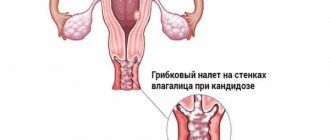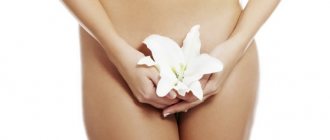Thrush is very common these days. There are several forms of this disease. It differs in that relapses often occur, even after successful treatment. It may turn out that there are now a significant number of different means for prevention and treatment, but in reality many have to deal with recurrent diseases. Nowadays, recurrent thrush is considered extremely common. Many people, after visiting a doctor and undergoing an examination, hear exactly this diagnosis.
There are many reasons for the occurrence of thrush and its recurrence. Most often, people whose immunity is weakened or have chronic forms of various diseases, for example, the digestive or respiratory system, have to deal with it. Usually it is necessary to treat both sexual partners, because sometimes the problem arises due to diseases of the genitourinary system.
What to do if thrush keeps coming back
In situations where a woman is literally tormented by thrush, complex treatment is required. Often this disease is cured quickly, but under the influence of unfavorable factors, the acute form of the disease develops into recurrent vaginal candidiasis. With increased fungal activity, therapy causes certain difficulties, since frequent relapses are associated with a decrease in the body's immune system.
https://youtu.be/Sd75fMOCPB0
Why does thrush come back?
The diagnosis of “recurrent thrush” in women is made in cases where the disease returns every month. There are only short periods of remission and frequent exacerbations.
The reasons for frequent thrush are as follows:
- depressed immunity;
- taking hormonal contraceptives or antibiotics;
- lack of immunoglobulin A in the body;
- disruption of the vaginal microflora and creation of a favorable environment for the development and reproduction of pathogenic microorganisms;
- incorrectly selected therapeutic course;
- damage to the body by other representatives of fungi;
- increased sensitivity to fungal infection, accompanied by an allergic reaction;
- self-medication.
Thrush often appears in cases where the viability of certain forms of yeast-like fungi is quite high. Even after complex treatment, the infection remains in the body, and the disease will return under certain conditions.
It should be noted that gestation period is also included among the risk factors. Constant thrush in pregnant women is not uncommon. This is due to a decrease in the body’s protective functions and hormonal disorders.
Why does relapse occur?
Approximately 5% of women experience a recurrent form of candidiasis. The reasons may be different, but they are always united by a weakened immune system as a result. When asked why thrush often appears, doctors answer by listing the following factors:
- weak protective vaginal barriers (disruption of normal microflora, lack of secretory immunoglobulins A, as well as T-lymphocytes with microphages);
- inadequate initial therapy, in particular self-medication;
- genital herpes and other sexually transmitted diseases;
- disorders in the functioning of the thyroid gland, ovarian dysfunction, diabetes mellitus and other hormonal disorders;
- HIV;
- pregnancy;
- chronic intestinal diseases;
- frequent use of antibiotics;
- continuous use of hormonal drugs;
- uncontrolled intake of probiotics;
- weakening of the body by diets;
- individual hypersensitivity to the pathogen.
More interesting: Candidiasis infection
It’s worth mentioning separately about probiotics. In principle, they have a beneficial effect on the body and are often included in the treatment of this disease, but if they are abused, the acidity of the microflora in the vagina will increase, which only stimulates the proliferation of fungi. Despite all the obvious benefits of probiotics, they should be consumed only as prescribed by a doctor. If he doesn’t say anything about them, you can clarify, but there is no need to self-medicate.
Also, with a weak immune system, even without strict diets, poor nutrition can play a cruel joke.
Treatment of frequent thrush in women
Treatment of recurrent thrush is carried out comprehensively. The gynecologist chooses the course of therapy.
Diagnosis and treatment of the disease are carried out under the strict supervision of a specialist. Trying to get rid of candidal colpitis on your own is strictly prohibited. Therapy continues even after all clinical manifestations of the disease have been eliminated. Often the reason that thrush recurs every month is due to insufficient treatment.
To cure a disease, it is extremely important to identify the root cause of its occurrence. For this purpose, you need to seek help from a doctor. He will conduct laboratory tests in the gynecology department and, based on the data obtained, will prescribe an adequate course of therapy. If during the first episode it is enough for a specialist to examine a smear taken from the vaginal mucosa during an examination, then with the frequent return of the disease, studying the discharge from candidiasis turns out to be little.
Diagnosis of candidiasis includes the following measures:
- examination on a gynecological chair and taking vaginal contents to study the microflora;
- stool, urine and blood tests;
- determination of sensitivity to medications using bacteriological culture;
- consultations with specialized specialists (immunologist, urologist, gastroenterologist, endocrinologist).
Therapy for chronic recurrent vaginal candidiasis has the following goals:
- stopping the activity of candida fungi;
- eliminating the root cause of the development of vaginal candidiasis;
- strengthening the immune system;
- restoration of the microflora of the vaginal lining;
- treatment of the sexual partner.
Frequent thrush in women is treated according to the following regimens:
- use of vaginal suppositories;
- taking systemic antifungal drugs and tablets for thrush;
- complex therapy with the use of vaginal suppositories and antibiotics.
Regardless of the chosen course, control diagnostics are carried out every week.
There are a huge number of antifungal drugs, long-term use of which gives good results. The use of Nystatin, Fluconazole, Diflucan is effective. Positive dynamics are noted in the case of the use of antifungal ointments and other local remedies, including Ketoconazole, Hexicon, Gynoflor, Livarol.
To prevent thrush from returning, you can use additional immunomodulatory drugs and agents designed to eliminate dysbiosis. These include any probiotics, as well as Lactofil and Linex.
Persistent thrush: tips
Frequent relapses of thrush can be prevented. To this end, it is necessary to eliminate the impact of unfavorable factors and overcome a number of diseases.
- Increased protective functions of the body. The recurrent course of the disease is often provoked by suppressed immunity. Such disorders can be caused by diabetes mellitus, chronic allergic or infectious processes and cachexia. Even an incorrect daily routine, excessive physical activity and mental stress negatively affect the immune system.
- Refusal of long-term use of antibacterial drugs. Taking such drugs is allowed only in exceptional cases and only as prescribed by a doctor. Medicines in this group destroy both pathogenic and beneficial microflora, but do not affect the fungus. Due to this, the infection begins to progress, and women often develop thrush.
- Fighting hormonal imbalances. The use of contraceptives and pregnancy can provoke disorders. Often this process occurs due to ovarian dysfunction, changes in the functioning of the thyroid gland and obesity.
The cause of thrush may be poor diet. An increased amount of carbohydrates in the diet causes the signs of candidiasis to reappear. Women are advised to completely avoid or minimize the consumption of fried, salty and spicy foods.
Particular attention should be paid to personal hygiene. To prevent the disease from recurring, regular use of sanitary pads should be avoided. You need to wash yourself twice a day, but do not use soap, but special intimate hygiene products. You should also choose your underwear carefully. It is not recommended to wear tight models made of synthetic materials. The choice should be made of cotton fabrics and loose tailoring.
To prevent thrush from returning and often reminding itself, you should also stop drinking alcoholic beverages. It is better to give preference to teas based on medicinal herbs that effectively affect the body as a whole.
Main causes of thrush
To understand why thrush comes back, you need to know the main reasons for its initial occurrence. Vaginal candidiasis is classified as an infectious fungal disease.
This means that there is a possibility of contracting thrush from a sick person. Therefore, inadequate conditions for personal hygiene, lack of it, and unprotected sexual intercourse can lead to infection.
But thrush manifests itself without direct contact with the patient. The girls don't understand why this happens. Therefore, the treatment is incorrect and unsuccessful. This is how recurrent thrush develops. Yeast fungi of the genus Candida exhibit their active vital activity when human immunity is weakened.
It has long been known that Candida is present in the body of every person in a certain amount. And with a decrease in protective reactions, the mushrooms begin to show activity. Women primarily suffer from vaginal candidiasis.
The following diseases can cause the development of thrush:
- Hormonal disbalance.
- Dysfunction of the endocrine system.
- Diabetes.
- Incorrect functioning of the gonads.
- Sexually transmitted diseases.
- Inflammation of the pelvic organs.
Often, a strong emotional shock leads to the active development of mushrooms. Even ordinary stress provokes thrush. Diet also plays a big role. After all, intestinal dysbiosis is one of the main causes of candidiasis. Thus, excessive consumption of sweets and baked goods disrupts the microflora of the intestines and vagina.
Hormonal imbalances in a girl’s body occur during pregnancy. This is why in most cases pregnant women suffer from candidiasis. Many medications also disrupt the microflora. The greatest danger in this case is hormonal drugs and antibiotics. So, after completing a course of treatment, girls complain of unpleasant manifestations of thrush. As you can see, there are many reasons for the development of the disease. That is why it is so important to find out the main factor in order to avoid frequent relapses of thrush.
Candidiasis is back: is the husband to blame for cheating?
If you are diagnosed with thrush, a relapse may occur after sexual intercourse, but this is not yet a reason to suspect your partner of cheating. A man is a carrier of infection and may not even know it.
During treatment, antifungal drugs should be taken by both partners. Thrush constantly returns in cases where the course of therapy is carried out unilaterally. The husband remains a carrier of the infection, since fungi that belong to the Candida group remain in his body, and the disease may return.
In addition, factors that provoke the appearance of signs of the disease, the main one of which is itching, may be inflammation of the mucous membranes, suppression of the immune system, damage to other infections and failure to comply with personal hygiene rules. This creates a favorable environment for the development of candidiasis. Accordingly, you should not blame your spouse for the fact that the thrush has returned. There are a huge number of reasons why relapses occur.
Treatment of frequently occurring candidiasis should be carried out exclusively by a gynecologist. A woman who does everything in accordance with his recommendations will have a minimal risk of relapse. Therapy is carried out comprehensively. Not only the symptoms of the disease are eliminated, but also the factors that provoke its recurrence.
Preventative techniques to prevent relapses
If a relapse of thrush occurs, the reasons for which are quite clear, appropriate conclusions must be drawn. This will allow you to avoid similar problems in the future. There are several fairly simple rules with which you can organize high-quality and productive prevention:
- It is necessary to effectively treat chronic diseases.
- Restore the functioning of the immune system.
- Eat right, take time to rest. The body should not be constantly in an overworked state.
- Maintaining a healthy lifestyle, eliminating various bad habits.
- Avoid casual sex.
- Maintaining basic personal hygiene, etc.
If a relapse of thrush occurs in a woman, the causes of which can be varied, all attempts must once again be made for a complete cure. This is quite possible with a competent approach and timely contact with professionals. It is necessary to strictly follow all the basic instructions of the doctor. Do not end the treatment course prematurely. Such behavior can provoke the occurrence of a recurrent form, which is quite unpleasant. The infection simply cannot be eliminated with just one pill. You must take medications in accordance with the advice of specialists. Until the course is completed completely, you cannot refuse treatment. Only such a responsible approach will help you recover.
Thrush again? How to get rid of recurrent thrush?
Thrush, candidiasis, mycotic vulvovaginitis - all this is the name of the same condition associated with an excessive spread of the fungus of the genus Candida albicans in the vagina.
Thrush occurs more often in women of reproductive age, less often in postmenopausal women and girls.
There are 3 forms of thrush:
- Candidiasis (asymptomatic).
- Acute candidiasis (exacerbation of asymptomatic or chronic course).
- Chronic form (or recurrent thrush).
Most have learned to cope with the acute course of the disease, but difficulties arise in treating recurrent thrush. And here a serious medical examination is necessary to identify its causes and ways to get rid of the disease.
Recurrent candidiasis
Constant thrush causes women a lot of inconvenience. Chronic disease worsens 4 or more times per year. This form of candidiasis occurs in 3-5% of the fair sex. Among the main reasons for its development are self-medication or insufficient diagnosis.
In order to prevent thrush from developing every month, it is necessary to take a responsible approach to treating the acute form of the fungal disease. You should consult a doctor as soon as primary symptoms appear. You should not use various folk remedies to combat the initial form of the disease. Such measures can provoke recurrent thrush, worsening the general condition of the body.
Recurrent thrush is similar to the acute course of the disease. The symptoms in this case have a more negative connotation:
- Unbearable itching and burning during sexual intercourse.
- The appearance of pain during urination.
- The presence of white creamy or curdled discharge.
- Redness and swelling of the mucous membrane of the external genitalia.
Recurrent thrush
Recurrent thrush (chronic thrush) is repetitions (relapses) of thrush 4 or more times a year. This is either every month, or during treatment once every 2-3 months. This disease occurs in 2-3% of women. It may be caused by insufficient diagnosis of the causes of candidiasis that has arisen for the first time or incorrect treatment.
Mycotic vulvovaginitis, even if it occurs for the first time, should be a “bell” about a deterioration in your health.
There are not so many causes of thrush
- deficient states of immunity: diseases of the kidneys, liver, intestines; diabetes mellitus, lack of work and rest schedule, cachexia, HIV infection, other chronic infections, allergic reactions;
- uncontrolled or prolonged use of antibiotics;
- long-term use of hormonal contraception;
- hormonal changes in the body: pregnancy, obesity, ovarian dysfunction, thyroid dysfunction;
- violation of the diet: excessive intake of carbohydrates (sweets, starchy foods), fried and salty foods;
- uncontrolled long-term use of eubiotics;
- daily use of synthetic pads;
- washing out flora during deep washing;
- untreated initial stage of candidiasis.
- drug resistance in case of incorrect dosage, self-medication and incomplete course of treatment;
- violations of hygiene rules: infrequent use of water procedures or the use of soap not intended for this area.
Repeated candidiasis can be dangerous due to the development of the following complications:
- Severe irreversible changes in the body associated with improper functioning of organs, leading to relapses of candidiasis.
- The appearance of bleeding erosions/ulcers in the area of scratching.
- Pain during sexual intercourse due to swelling of the mucous membrane and a strong burning sensation in the vagina and vulva.
- Serious inflammatory diseases of the pelvic organs, adhesions and, as a result, infertility.
- General discomfort, tendency to depression, neurological disorders.
Recurrence of thrush manifests itself:
- unbearable itching and burning in the genital and vaginal area;
- pain from scratching;
- white “curdled” discharge from the genital tract;
- swelling of the mucous membrane.
Treatment of recurrent thrush
Before starting treatment, you should make sure that the diagnosis of “recurrent thrush” is correct, since there are a number of chronic infections with similar symptoms.
Approaches:
- The chronic course of thrush is treated over a long period of time and in combination with other diseases.
- Identifying and getting rid of chronic diseases that cause thrush. Including increasing the protective resources of the immune system.
- Treatment requires sanitizing the sexual partner.
- All medications must be carefully selected and used as prescribed by the doctor. Self-medication can be harmful to health.
When you visit a doctor with repeated symptoms of thrush, you need to be prepared for the fact that you will be sent for a long, more in-depth examination than the first time. With simple brush strokes on the flora, everything just begins. It is necessary to consult with a therapist, where you will be prescribed blood, urine, and stool tests.
It is also advisable to visit an endocrinologist and immunologist. All this is necessary in order to understand why thrush recurs, for the success of treatment and to prevent serious disorders in the body.
The most effective treatment is an individual integrated approach:
There are several treatment regimens for thrush:
- using vaginal suppositories 1-2 times a week for a month;
- use of antimicrobial drugs 1-2 times a week for several months;
- joint use of vaginal suppositories and medications 1-2 times a week for several months.
How is fungus treated?
Such an infection requires an integrated approach to treatment. Despite the amazing variety of medicines presented on the pharmaceutical market, you should not self-medicate, since the likelihood of correct self-assessment of the manifestations of the disease is low. A person can rarely choose the right drug for himself and develop a treatment system.
The treatment plan necessarily includes the following measures:
- immunity is restored;
- local symptoms of the disease are eliminated;
- system for treating manifestations of candidiasis.
Most often, treatment is carried out under the supervision of a gynecologist, dermatologist or urologist. If the fungus manifests itself, the sexual partner is also treated. This approach will prevent the recurrence of the disease.
The doctor selects a treatment regimen individually for each patient and it is aimed not at complete destruction (the fungus is part of the normal microflora of the human body), but at limiting its reproduction.
Doctor speaking! A prerequisite for cure is an integrated approach.
- First of all, it is determined how sensitive the fungus is to drugs;
- the acid-base balance of the mucous membranes and its composition are normalized;
- immunity is normalized;
- the causes that provoke candidiasis are identified and eliminated;
- concomitant diseases of an infectious nature are treated.
Each condition must be strictly observed. Only then the question: why the thrush returned will never arise again.
During treatment, restrictions on sexual activity must be imposed.
What needs to be done to prevent thrush from appearing again?
First of all , you need to pay attention to your diet and, if necessary, eliminate or reduce the amount of foods consumed that are high in sugar, salt, and smoked foods. Which, above all, will improve your overall health.
To maintain your immunity, you need to provide it with everything you need - i.e. include as many natural foods as possible in your diet: vegetables, fruits, berries, herbs. Of course, spend more time in the fresh air, play sports, and control your weight.
Secondly , you should wear cotton underwear and try not to get carried away with panty liners. And during menstruation, use pads instead of tampons, since tampons can disrupt the natural microflora of the vagina.
The clothes you wear should not be too tight, as this increases the temperature in the groin area, especially during the hot season. However, dressing warmly is one of the main tasks in winter.
Third , protected sexual intercourse - especially in the initial stages after treatment, so as not to disturb the established biocenosis of the vagina, it is reasonable to use condoms.
Fourthly , you need to wash yourself 1-2 times a day with water or special intimate care products. The use of products containing alkali or wet wipes is detrimental to the functioning of the bacteria of a woman’s normal flora.
Also, you should not wash deeply, i.e. flush out all the “dirt” from the vagina, this will flush out the good bacteria that protects against imbalances in the vagina. The external genitalia must be washed. The towel should be individual and changed frequently.
Causes of thrush recurrences
Fungi of the genus Candida are opportunistic microorganisms. They do not cause harm, do not cause unpleasant, painful, dangerous symptoms until favorable conditions are created for them.
The trigger mechanism is weakened human immunity. It is unable to restrain the growth of fungi, so pathological microorganisms quickly colonize various internal organs. It all starts, in most cases, with the genitals and intestines.
As mushrooms grow, the amount of their waste products increases and toxins accumulate in the body. The further development of the situation depends on how the immune system fights the fungi:
- It will get stronger and stop reproduction, the thrush will stop.
- Will weaken even more, candidiasis will begin to progress, affecting various internal organs.
As soon as the body weakens for one reason or another, an exacerbation of the disease begins with all the unpleasant symptoms.
Factors contributing to relapse:
- hormonal disbalance;
- antibiotics;
- hypothermia;
- gastrointestinal diseases;
- pathologies of the thyroid gland;
- exhaustion of the nervous system;
- chronic lack of sleep;
- poor nutrition;
- avitaminosis;
- sudden weight loss;
- obesity;
- contraceptives;
- abortions;
- non-steroidal anti-inflammatory drugs;
- abuse of medications, including vitamins;
- pathologically weak immunity;
- frequent inflammatory diseases;
- poor nutrition;
- alcohol abuse;
- numerous sexual relations;
- urinary tract infections;
- synthetic underwear;
- pads, tampons;
- pregnancy;
- intimate hygiene products;
- climate change;
- period;
- stress, severe shock;
- overheating in the sun.
The long list of factors for recurrent thrush can be continued. It follows from this that anything can provoke a relapse if the body’s protective functions are weakened.
Common causes of relapse
Thrush can develop in almost anyone. These can be mature women, men and even children. The main reason is considered to be an increased concentration of opportunistic fungi. Such microorganisms are able to live inside the human body without causing any problems until they are affected by some specific factor. It activates the development of the disease. The infection can affect various parts of the body, such as nails, genitals, skin and much more. About five percent have now been diagnosed with recurrent thrush. Although many may not realize this.
Harmful fungi can multiply for various reasons, the main one being a significant weakening of the immune system. The human body in a normal state is able to independently protect itself from such pathogens. This effect can be achieved through a competitive relationship between microorganisms and the corresponding environment. Lactobacilli, which are located inside the body, mutually control each other. Usually fungi are in the minority, which is why they do not cause any harm. But when the vector of the situation changes, some fungi can begin to multiply extremely quickly. As a result, individual parts of the body are colonized and previously healthy cells are damaged. Thus, a toxic effect occurs, which provokes the formation of unpleasant symptoms. Various factors can contribute to this process:
- Imperfect functioning of the endocrine system.
- Problems related to metabolic processes.
- Taking antibiotics.
- Various diseases of venereal origin.
- Problems with the gastrointestinal tract.
- Poor nutrition.
- Sexual contact with carriers of infection.
- Immune system disorders.
- Increased susceptibility to allergic reactions.
- Hypothermia of the body, frequent stress, lack of rest, which causes chronic fatigue.
- Self-medication or interrupted treatment process.
Very often in such situations, recurrent candidiasis occurs, which can gradually become chronic. It occurs, unfortunately, too often. There are many reasons, the main one being interruption of the treatment being used. If the symptoms disappear, this does not mean that the problem is completely eliminated. Some people mistakenly begin to believe that they have dealt with their problem and have fully recovered, but in reality the fungus still remains in the body and actually spreads as before. Incomplete treatment causes a chronic form. It can be very difficult to diagnose from the first time. A person becomes a carrier, capable of infecting many others around him.
More interesting: Tormented by thrush: what to do
The appearance of thrush can be provoked by advanced diseases from which the patient suffers. Even with fully completed treatment, it is not always possible to completely eliminate all problems. The body is greatly weakened due to chronic forms, and there is an active decrease in the capabilities of the immune system. For this reason, pathogenic bacteria inside the body begin to actively grow and multiply.
Infections that may be present in the genitourinary system are considered another significant factor for the occurrence of relapses. It is necessary to discover all the causes and eliminate them. Only professional treatment of recurrent thrush can give appropriate results. Among the parallel diseases that arise in such situations is herpes. It is very difficult to diagnose. Often it can be in a so-called dormant state for literally several years. It often contributes to relapses.
Nutrition is an incredibly important issue. Excessive weight can cause significant problems and complications. Increased body weight can be a cause and lead to the formation of a chronic type. You should not eat excessive amounts of sweets or eat incorrectly, because this provokes dysbacteriosis and all related problems. This creates a favorable environment for microorganisms in which reproduction occurs as actively as possible.
If the process is not completed, the disease may return at least several times a year, even with prolonged treatment. Therefore, recurrent thrush and effective treatment must go together. That is, thrush must be effectively treated and the matter completed, regardless of various external factors. Sometimes the disease returns about a week after completing the next treatment course. This is most often provoked by too weak immunity. If a person often catches colds, suffers from chronic bronchitis or a runny nose, problems will appear frequently. Therefore, it is necessary to strengthen the immune system.
Symptoms of the disease
Recurrent thrush is characterized by periods of exacerbation and subsidence of symptoms. But in this case, this does not mean that candidiasis has been cured and will never return. It’s just that the body gained a little strength, stopped the growth of pathogenic microorganisms, the symptoms weakened, but did not disappear completely. The condition is even more dangerous than the acute form of thrush. Because it gradually affects internal organs, causes weakening of the entire body, and provokes infertility.
Symptoms during relapse:
- copious thick white discharge with a sour odor;
- plaque on the genitals inside and outside;
- itching that intensifies in the evening;
- burning during water procedures using soap;
- discomfort during sexual intercourse;
- pain during the process, at the end of urination, false urges;
- swelling, redness of the genitals;
- menstrual irregularities with delay, heavy periods.
Examination, diagnostics
Candida fungi are always present in the human body. The task of specialists is to identify not the presence of pathological microorganisms, but their quantity. It is this factor that determines the development of the disease.
Initially, the specialist studies the clinical picture from the patient’s words and makes assumptions. Conducts an external examination if the affected organ allows it.
- Genital thrush is easily identified upon examination. There is a white coating and cheesy formations on the mucous membrane. Additionally, a smear is taken to examine the secretions in the laboratory.
- With candidiasis of the esophagus, intestines, and anus, there is bloating and rumbling. There is irritated skin around the anus and a white coating. Additionally, scrapings and feces are taken for examination. If necessary, an instrumental examination of the digestive organs is carried out.
- Candidiasis of the urinary tract and kidneys is more difficult to determine. They do an analysis of urine, stool, and vaginal discharge.
For thrush of the respiratory system, sputum is examined.
- Candidiasis of the brain and heart is the most difficult to determine. The only material from which information can be obtained is blood. They detect antibodies that are produced by the immune system to fight fungi.
In the case of genital thrush, you can determine the presence of the fungus in the body yourself without laboratory tests, guided by the main symptoms. In other cases, the manifestations of candidiasis are similar to other diseases. To begin treatment, it is necessary to establish the true cause of the pathological process and make an accurate diagnosis. Incorrect prescription of an antifungal drug can increase the manifestations of thrush.
Treatment regimen
The most common type of candidiasis is genital. However, it can be triggered by intestinal thrush. Just like vaginal candidiasis can spread to the gastrointestinal tract. Treatment methods are aimed at stopping the growth of the fungus throughout the body, so tablets for internal use, suppositories, vaginal suppositories, creams, and ointments are used.
Basic therapy
Antifungal drugs in the treatment of candidiasis are the No. 1 remedy. The form is selected based on the location of candidiasis and the intensity of manifestations. Additionally, medications are prescribed to strengthen the immune system, normalize the functioning of the internal and genital organs, and restore the microflora of the vagina and intestines.
The dosage of tablets is prescribed by the doctor. Typically, they operate according to the following scheme. On the first day of treatment, take the maximum permissible daily dose. In a day the minimum. Continue to take the drug for 2 weeks every other day. To consolidate the effect, take antifungal tablets for 1 day at a minimum dose every month for a year.
Often prescribed:
Vaginal suppositories and anal tablets have a good local effect. The active components do not penetrate into the general bloodstream, which reduces the likelihood of side effects. It should be used once a day before bedtime, after water procedures. The duration of the course of therapy is 5-10 days. After the symptoms disappear, it is necessary to continue treatment until the end:
- Hexicon;
- Terzhinan;
- Klion D;
- Relief;
- Livarol;
- Candles made from calendula oil, sea buckthorn, with adrenaline, propolis.
Cream and ointment are used topically twice a day for 14 days. Ketoconazole and Gynoflor are often prescribed.
Complementary therapy
At the same time, they take medications to normalize the intestinal microflora and restore normal body functions:
To eliminate bloating, rumbling, pain:
To remove toxins from the body:
- Activated carbon;
- Atoxyl;
- Enterosgel.
When the immune system is severely weakened, immunomodulators and immunostimulants are prescribed.
Folk remedies
Recipes from traditional healers are used to prevent relapses after a course of qualified therapy.
- Decoctions of medicinal herbs - chamomile, lemon balm, mint, thyme, Irish moss, are drunk as tea, used for douching, compresses, and baths.
- Sea buckthorn and calendula oils are used to moisten a tampon, placed in the vagina before bed, and for intestinal thrush, applied to the anus.
- For washing, use water with the addition of salt, soda or manganese. The product relieves the symptoms of thrush well and prevents the growth of fungus.
The key to a quick recovery and no relapses is giving up bad habits and following a diet.
Factors contributing to frequent relapses of thrush
Recurrent thrush after treatment can be acute or chronic. The first case can be discussed in the case when during the year the manifestation of symptoms of the disease was average, and the disease itself returned no more than 3-4 times.
If you have thrush more than 5 times, and its symptoms are pronounced and significantly interfere with everyday life, then you are dealing with a chronic form. Moreover, in approximately a quarter of cases, the disease recurs before menstruation.
To find out how to get rid of the disease, as well as to get a well-designed drug therapy plan, you need to contact your doctor. To do this, women, in most cases, need to visit a gynecologist, and men – a urologist. You may also need to consult other specialists, which the doctor conducting the diagnosis will additionally inform you about.
Prevention
To completely get rid of thrush and prevent relapses, it is necessary to direct efforts to strengthen the immune system and negate the impact of adverse factors.
- Exercise;
- Take daily walks;
- Be in the fresh air more often;
- More positive emotions;
- Try to get enough sleep;
- Normalize physical activity;
- Avoid scandals, nervous shocks, overwork;
- Do not abuse pills;
- Take vitamins, eat more fresh vegetables and fruits;
- Follow the rules of hygiene;
- Use linen made from natural fabric;
- Replace synthetic gaskets with natural ones;
- Do not abuse alcohol, coffee, sweets;
- Monitor your weight;
- Do not overcool;
- Treat all diseases in a timely manner;
- Normalize the menstrual cycle;
- Stop taking birth control pills;
- Eat properly;
- Select your sexual partner carefully.
Compliance with several points from this long list reduces the risk of recurrence of thrush, and the implementation of each of them eliminates the disease and increases the body's protective functions.
Sources:
https://topginekolog.ru/bolezni/molochnitsa/retsidivy https://molochnica.online/therapy/retsidiviruyushaya https://mrgribok.ru/molochnitsa/retsidiviruyushhaya.html









